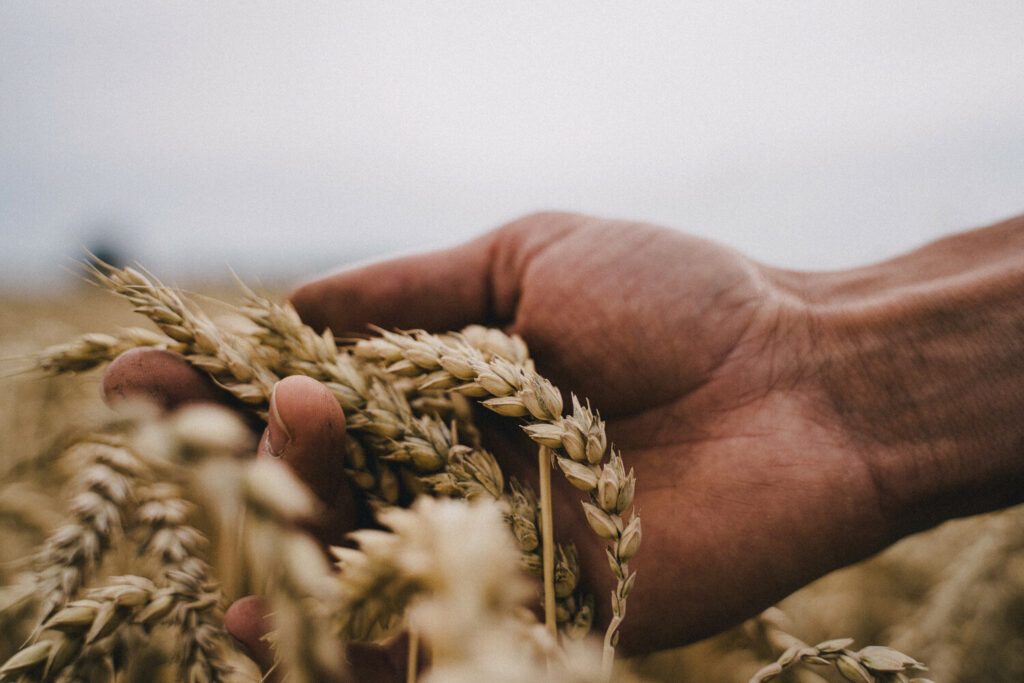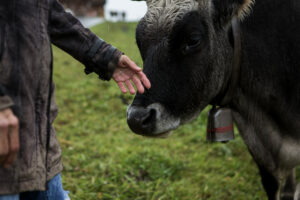Sustainable agriculture is vital for successful climate action
As the COP26 negotiations take place, it is essential to consider the significant role the current intensive agricultural sector plays in contributing to climate change when agriculture can be a solution to the climate crisis – if done sustainably. The Biodynamic Federation Demeter International calls on the world leaders to bring back agriculture into focus and engage in sustainable farming practices. Biodynamic farming leads the way forward when it comes to building an agriculture for the future.
Currently the 26th United Nations Climate Change Conference of the Parties (COP26) is taking place in Glasgow, Scotland. The climate crisis has never been so high on the political agenda. This year’s numerous fires and flooding because of anthropogenic global warming just show how urgent it is to act. The leaders of the world must make serious commitments to build future-proof solutions.
Agriculture is central
This starts already with the focus of the conference. Agriculture will be discussed only on November 6th under the keyword ‘nature’ as part of the discussions on ‘sustainable land use’. This is little considering that agriculture, forestry, and other land use are a significant net source of greenhouse gas emissions (GHGs). According to the latest Special Report on Climate Change and Territory of the Intergovernmental Panel on Climate Change (IPCC), agriculture, forestry, and land use account for around one-third of the total global emissions. The importance of agriculture becomes even clearer when considering its potential as a mitigation strategy through carbon capture and storage. Therefore, agriculture must become a central point of focus for the world leaders, especially the transition towards climate-friendly farming practices.
Paradigm shift needed
Our current farming practices are highly unsustainable contributing largely to the total global emissions. “A real paradigm shift must occur for agriculture to become future-proof and climate friendly. This is possible if we take a step back from the industrial and production-oriented farming systems. Biodynamic farming shows the way forward. As a regenerative farming system it aims to return to the land more than it takes“, states Christoph Simpfendörfer, General Secretary of the Biodynamic Federation Demeter International.
Potential of biodynamic farming
Biodynamic farming has, indeed, a high potential when it comes to climate mitigation by capturing and storing GHGs and by achieving the highest soil ecological quality. Alone grassland soils store 50% more carbon than forest soil worldwide relatively to the biomass. And when it comes to the impact of the main farming systems on soil biodiversity, the soil biological indicators are improved by 43% in biodynamic farming compared to organic farming, and 70% compared to conventional farming. This is thanks to the absence of chemical inputs, crop rotations, and catch crops. Biodynamic soils are living soils with a nutrient-rich and nourishing humus layer that capture and store carbon effectively. Biodynamic farming can therefore provide many solutions for sustainable farming practices.
Political commitment for sustainable agriculture
However, the potential of agriculture to contain anthropogenic global warming remains largely unexplored. The COP26 must put agriculture into focus with a will to make our food and farming systems more sustainable: away from intensive farming to regenerative farming models such as biodynamic farming. We urge the world leaders to aim for structural and legislative incentives to support regenerative farming systems and include the right shareholders throughout the entire food supply chain in the discussions. Only sustainable agriculture can lead to successful climate action!
Read more about how biodynamic farming is good for the climate and how humus rich soil can sequester carbon.
Contact: Clara Behr, Head of Policy and Public Relations
clara.behr@demeter.net
Brussels, 03.11.2021



